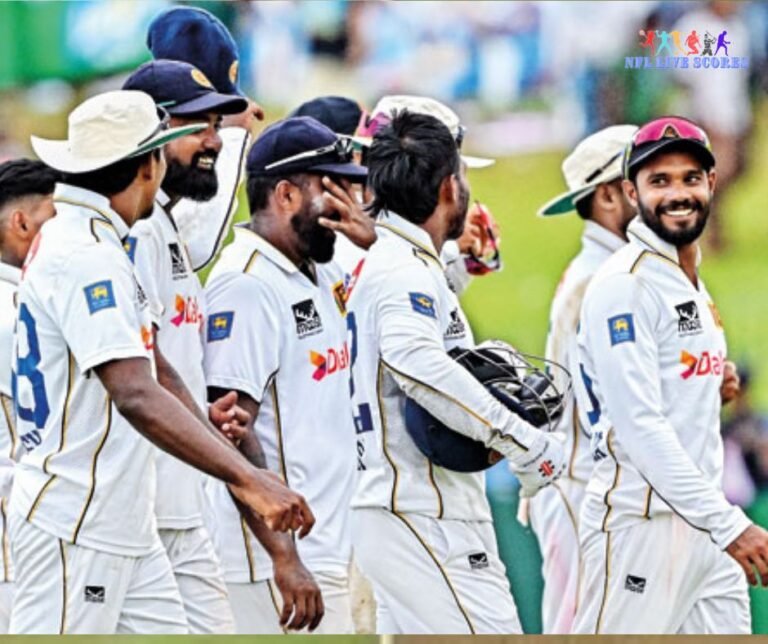
Countdown to Glory:
Countdown to Glory: As the footballing world turns its attention toward 2025, excitement is mounting for what promises to be the most groundbreaking edition of the UEFA Wome
As the footballing world turns its attention toward 2025, excitement is mounting for what promises to be the most groundbreaking edition of the UEFA Women’s Euro yet. With momentum building from the incredible success of Euro 2022 in England, the upcoming UEFA Women’s Euro 2025, set to be hosted in Switzerland, is being heralded as a turning point—not just for women’s football in Europe, but for the global sporting landscape.
From record-breaking attendance figures and surging media coverage to rising stars and increasing investment, the stage is set for a tournament that will not only celebrate elite competition but also inspire a new generation of players and fans. The countdown to glory has officially begun.
A Host Nation Ready to Shine
Switzerland, a country with a deep-rooted love for football, has been preparing extensively to host its first major international women’s tournament. Spread across eight cities—including Zurich, Basel, Bern, and Geneva—the country promises state-of-the-art facilities, scenic backdrops, and a vibrant footballing culture ready to embrace the European elite.
The Swiss Football Association (SFV) has already laid out plans to make this a fan-first, sustainability-focused event. Local governments, tourism boards, and grassroots organizations are coming together to ensure that Euro 2025 leaves a lasting legacy, both on and off the pitch.
Building on a Booming Legacy
The UEFA Women’s Euro 2022 in England was a watershed moment. With over 570,000 fans attending matches and more than 365 million viewers worldwide, it shattered records and brought unprecedented visibility to the women’s game. England’s historic victory at Wembley Stadium, in front of a sold-out crowd of 87,000, was more than just a football triumph—it was a cultural milestone.
That momentum has carried into domestic leagues, sponsorship deals, and youth engagement across Europe. UEFA is determined to make 2025 even bigger by expanding media access, enhancing player welfare, and showcasing footballing excellence on a continental scale.
Tournament Format and Qualification
The 2025 edition will see 16 of Europe’s best national teams battling it out for continental glory. The qualification phase, currently underway, is fiercely competitive, with emerging teams like Belgium, Austria, and Iceland posing serious challenges to traditional powerhouses such as Germany, France, Sweden, and England.

For the first time, UEFA has introduced a revamped qualification system featuring a league-style format, encouraging more competitive balance and more meaningful matches throughout the cycle. This approach is designed not only to raise the quality of play but also to level the playing field for smaller nations developing their women’s football programs.
Stars to Watch
Euro 2025 is expected to be a showcase of established legends and rising stars:
-
Alexia Putellas (Spain): The two-time Ballon d’Or winner is expected to lead a golden generation of Spanish talent aiming for their first European title.
-
Lauren James (England): With raw talent and technical flair, James has become a focal point of England’s future.
-
Ada Hegerberg (Norway): Returning from injury with a point to prove, Hegerberg brings experience and firepower.
-
Marie-Antoinette Katoto (France): A goal-scoring machine, Katoto’s presence will be vital for Les Bleues.
-
Ramona Bachmann (Switzerland): The veteran forward will have the weight of the home crowd behind her as she leads Switzerland.
The tournament will also serve as a scouting ground for fans and clubs to witness next-generation stars, as more teenage phenoms enter the spotlight thanks to strengthened academies and youth systems.
The Tactical Revolution
Women’s football has undergone a dramatic tactical evolution in recent years. At Euro 2025, expect to see high-press systems, possession-based dominance, and counter-attacking brilliance. Coaches like Sarina Wiegman (England) and Jorge Vilda (Spain) have elevated the tactical approach to match that of the men’s game, and innovations in sports science, analytics, and training methodologies are further closing the gap.
The tournament will be a chessboard of strategies, with nations experimenting with 3-5-2 formations, fluid midfields, and rotating forwards. The quality of play has never been higher, and fans can look forward to intelligent, thrilling football from start to finish.
Commercial Growth and Sponsorship
UEFA Women’s Euro 2025 is also poised to be a commercial juggernaut. Major global brands—including Visa, Nike, Barclays, and Adidas—have expanded their investments into the women’s game. Broadcast rights are being sold across more than 100 countries, and UEFA is working with platforms like YouTube, DAZN, and national broadcasters to maximize accessibility.
Merchandise, fan experiences, and digital engagement will all be pushed to new heights, creating a multi-platform ecosystem that brings fans closer to the action than ever before. UEFA is also working closely with clubs and national teams to promote inclusivity, mental health awareness, and gender equity.
The Bigger Picture: Women’s Football on the Rise

Beyond Europe, the growth of women’s football is impossible to ignore. FIFA’s expanded Women’s World Cup, club competitions like the UEFA Women’s Champions League, and increasing parity in pay and resources across federations are driving a global movement.
UEFA Women’s Euro 2025 is not just a sporting event—it’s a social milestone. It symbolizes progress, empowerment, and the breaking of barriers in what was once a male-dominated industry. As more young girls watch their heroes shine on the biggest stage, the pipeline of talent and interest will only continue to expand.
What Lies Ahead
With less than a year to go until kick-off, anticipation is building. National teams are finalizing their squads, cities are preparing their stadiums, and fans across the globe are booking their tickets. For the players, it’s an opportunity to write their names in history. For the fans, it’s a celebration of skill, spirit, and unity.
UEFA Women’s Euro 2025 will be more than just another tournament—it will be a statement of intent. A declaration that women’s football is no longer an emerging force, but a mainstream powerhouse ready to take center stage.
As the countdown to glory continues, one thing is certain: football is changing—and it’s changing for the better.
n’s Euro yet. With momentum building from the incredible success of Euro 2022 in England, the upcoming UEFA Women’s Euro 2025, set to be hosted in Switzerland, is being heralded as a turning point—not just for women’s football in Europe, but for the global sporting landscape.
From record-breaking attendance figures and surging media coverage to rising stars and increasing investment, the stage is set for a tournament that will not only celebrate elite competition but also inspire a new generation of players and fans. The countdown to glory has officially begun.
Read More:>
“Tigers vs Lions: Bangladesh and Sri Lanka Face Off in High-Stakes Encounter”




